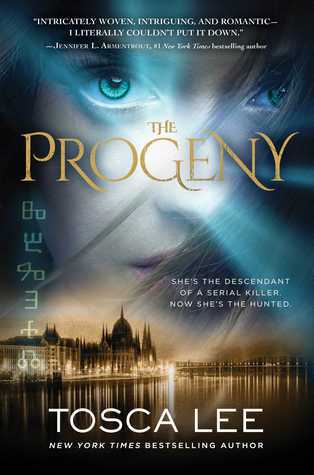 On the evening on Tuesday 26 September, I staggered through the revolving doors of the Holiday Inn, Central Milton Keynes, singing an old Seekers’ song under my breath as I met the night air:
On the evening on Tuesday 26 September, I staggered through the revolving doors of the Holiday Inn, Central Milton Keynes, singing an old Seekers’ song under my breath as I met the night air:
Now the harbour light is calling
This will be our last goodbye
Though the carnival is over
I will love you till I die…
 Milton Keynes Literature Festival was over, and it had been a great success. Ticket sales about 40% higher than our target, and audience evaluations that showed that only 0.3% of those who came found their chosen event less than ‘Good’.
Milton Keynes Literature Festival was over, and it had been a great success. Ticket sales about 40% higher than our target, and audience evaluations that showed that only 0.3% of those who came found their chosen event less than ‘Good’.
Our Writing Wall for visitors’ comments gave us all a warm glow too –
It takes vision to write on a blank slate but you pulled it off in style! First of many lit fests to, I hope.
What a fantastic first ever MK Lit Fest! The talks and readings have been fantastic and it’s amazing to have such a cultural tour-de-force in my home town!
 There are a thousand lessons to learn from the experience (although a friends’ quip that one should ‘Never work with children, animals or community arts groups’ was a little harsh), not just in terms of writing and reading (sessions by Katie Ward, Tracy Buchanan, Joanna Walsh and Galley Beggar’s Sam Jordison, AFE Smith and several others all gave insights into how to write as well as what has already been written) but in understanding the book industry and running festivals. We kept costs tghtly under control to keep ticket prices down, but even shoestrings don’t come cheap nowadays – without a massive injection of voluntary labour, this would never have happened.
There are a thousand lessons to learn from the experience (although a friends’ quip that one should ‘Never work with children, animals or community arts groups’ was a little harsh), not just in terms of writing and reading (sessions by Katie Ward, Tracy Buchanan, Joanna Walsh and Galley Beggar’s Sam Jordison, AFE Smith and several others all gave insights into how to write as well as what has already been written) but in understanding the book industry and running festivals. We kept costs tghtly under control to keep ticket prices down, but even shoestrings don’t come cheap nowadays – without a massive injection of voluntary labour, this would never have happened.
 But they’re mostly happy lessons – a town derided as a cultural desert can construct a pop-up oasis, and the people will gather round the watering hole to drink. You can turn an unlikely venue – a conference suite in a Holiday Inn (whose generosity and wonderful staff support deserve huge praise) – into a space filled with visual delights and details (and huge thanks to the team who did so). A programme that – by practicalities and accident as much as design – freely mixed genres and audiences during the course of both Saturday and Sunday drew favourable comments about eclecticism and diversity: curation by serendipity.
But they’re mostly happy lessons – a town derided as a cultural desert can construct a pop-up oasis, and the people will gather round the watering hole to drink. You can turn an unlikely venue – a conference suite in a Holiday Inn (whose generosity and wonderful staff support deserve huge praise) – into a space filled with visual delights and details (and huge thanks to the team who did so). A programme that – by practicalities and accident as much as design – freely mixed genres and audiences during the course of both Saturday and Sunday drew favourable comments about eclecticism and diversity: curation by serendipity.
 Not that there wasn’t enjoyment too: being reunited with the ever-dapper Linton Kwesi Johnson, last heard by me back in the early 80s at rather more politically-focused events; the wonderful poetry of Siobhan Campbell; Michael Rosen enlightening us all about Zola’s time in England, including at a hotel where I had a bar job many decades later (the place hadn’t improved, by the sound of things); Clare Mulley’s fascinating exploration of two very different women aviators during The Third Reich (and an unexpected anecdote about Mussolini’s penis)… only as the Festival unfolded did the wealth of riches that we had accumulated really become apparent.
Not that there wasn’t enjoyment too: being reunited with the ever-dapper Linton Kwesi Johnson, last heard by me back in the early 80s at rather more politically-focused events; the wonderful poetry of Siobhan Campbell; Michael Rosen enlightening us all about Zola’s time in England, including at a hotel where I had a bar job many decades later (the place hadn’t improved, by the sound of things); Clare Mulley’s fascinating exploration of two very different women aviators during The Third Reich (and an unexpected anecdote about Mussolini’s penis)… only as the Festival unfolded did the wealth of riches that we had accumulated really become apparent.
 On a personal note, I was also honoured – if not a little nervous – to participate as a performer too, as part of a panel of local writers discussing their craft, their process and their individual genres. The comment photographed to the left definitely made my evening, especially after speaking for the best part of two and half hours. Su R, whoever you may be, thank you.
On a personal note, I was also honoured – if not a little nervous – to participate as a performer too, as part of a panel of local writers discussing their craft, their process and their individual genres. The comment photographed to the left definitely made my evening, especially after speaking for the best part of two and half hours. Su R, whoever you may be, thank you.
Several weeks of manic work organising all that has had one downside: no writing achieved, although the backlog of scribbled notes to self and ideas will be interesting to decipher and explore. In the meantime, two more stories have made their way out into the world: Vapour appeared in an anthology, Voices from the Grid, produced as part of the 50th Birthday Celebrations for Milton Keynes, and Bro (previously published by Chelsea Station) has been published in Best Gay Stories 2017 from Lethe Press – my copy arrived this morning, and I still wrapping my head around being in the same book as people whose work I’ve read and admired. And a thank you to the wonderful Polari Literary Salon, not just for – quite rightly – awarding their First Book Prize to Saleem Haddad for Guapa – but for introducing me to The Pansy Project. Stunning animation, and guerrilla gardening with a sense of purpose.
Recent Reading
Tin Man – Sarah Winman
 A friend’s recommendation, and it was a few pages before I was sure. Winman’s style is rather plain, although undemonstratively compassionate, but the storytelling is more than eloquent enough to overcome any misgivings. An exploration of loss, intimate friendships that have crossed boundaries, unexpected understanding, it’s a tale of heartbreak – and the noun should be plural – that I found entirely captivating. In many ways the same story – although we are in 80s Britain rather than the Netherlands – as Eric Bock Rubin’s The School of Velocity, this is an infinitely better book, not least as both young men are given their own voice and the female third party is rendered sympathetically too. The characters here feel truly like people rather than cunningly constructed devices: the author is telling their story rather than using them to tell hers.
A friend’s recommendation, and it was a few pages before I was sure. Winman’s style is rather plain, although undemonstratively compassionate, but the storytelling is more than eloquent enough to overcome any misgivings. An exploration of loss, intimate friendships that have crossed boundaries, unexpected understanding, it’s a tale of heartbreak – and the noun should be plural – that I found entirely captivating. In many ways the same story – although we are in 80s Britain rather than the Netherlands – as Eric Bock Rubin’s The School of Velocity, this is an infinitely better book, not least as both young men are given their own voice and the female third party is rendered sympathetically too. The characters here feel truly like people rather than cunningly constructed devices: the author is telling their story rather than using them to tell hers.
This Census-Taker – China Mieville
 A Novella Book Club choice, and we seem to continue to be unsuccessful with many of our selections. This seemed to aim for a speculative fiction version of Kafka but produce only a half-baked Tim Burton script instead. Long – very long – on atmosphere, it also comes with some very convoluted sentences that don’t fit easily in the narrative voice of a strangely ageless child, and an almost determined resistance to give the reader anything much to hang onto – either in meaning or in plot. There felt to be a brief moment of clarity about 60 pages in, although this revealed a book that was attempting to dress a fairly standard ‘distrust of The Other’ scenario in a lot of bat-catching and magic realist voodoo. And then it lapsed and anything concrete feel away once more. He has many fans, who presumably will love this, but I found it irritatingly protracted even at this length.
A Novella Book Club choice, and we seem to continue to be unsuccessful with many of our selections. This seemed to aim for a speculative fiction version of Kafka but produce only a half-baked Tim Burton script instead. Long – very long – on atmosphere, it also comes with some very convoluted sentences that don’t fit easily in the narrative voice of a strangely ageless child, and an almost determined resistance to give the reader anything much to hang onto – either in meaning or in plot. There felt to be a brief moment of clarity about 60 pages in, although this revealed a book that was attempting to dress a fairly standard ‘distrust of The Other’ scenario in a lot of bat-catching and magic realist voodoo. And then it lapsed and anything concrete feel away once more. He has many fans, who presumably will love this, but I found it irritatingly protracted even at this length.
The Mountain – Paul Yoon
An American short story writer, whose second collection arrives festooned with praise from worthy sources. As its (beautiful) cover didn’t give off any scent of rat, I plunged in and found myself immersed in some very skilled prose writing that spans vast tracts of geographical and chronological time. Still A Fire, which introduces us to a WWII survivor and the morphine-addicted Belgian nurse who cares for him, resonates with an extra dimension from its setting in squatted settlements on the outskirts of Calais, giving the story an undercurrent of timelessness despite its very defined setting. And Vladivostock Station captures in a rekindled friendship the bleakness of live in remote towns around which time has built bypasses. Evocative, powerful and immersive writing.
Recent Listening
Tigre – Banda Magda
If Magda Giannikou’s multi-headed, multicultural outfit has hitherto been mostly a joyous romp through the musics of some of the world’s sunnier countries, than the groove is not abandoned here but it has slipped into something more sophisticated for its latest dance. There are still rhythms here a plenty – and percussionists to power them – but there are also opulent string arrangements that dress the songs for the salon as well as the dancefloor. Music to drink cocktails too. And more than one of them.
Amplitude – Danças Ocultas com a Orquestra Filarmonia das Beiras
Still on my eternal sonic Lusophone kick, more Portuguese artistry to explore. 4 concertina players, a fado singer, a composer best known from Madredeus and the Dead Combo (sort of Lisboan punk-fado, sort of), and an orchestra. It’s eclectic, it’s slightly mad in places and its virtuosity is undoubted, if rarely at the expense of the music. Possibly an acquired taste, but many fine things are.
Advertisements Share this?




